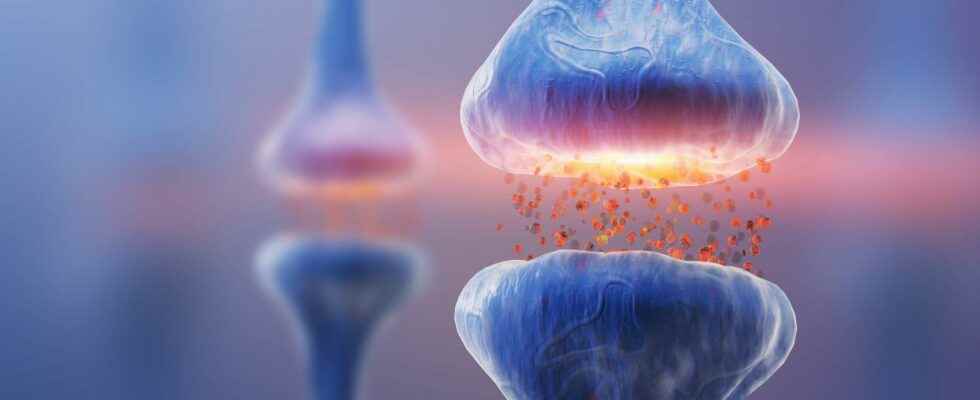Sometimes, we start to believe in totally aberrant things. But why ? Several researchers from the École Normale Supérieure, the Sainte-Anne hospital, Inserm and the Institut du Cerveau have looked into the question. A specific synaptic receptor would be involved. When it is blocked, we make aberrant decisions.
How can people embrace conspiracy theories? In the midst of a pandemic coronavirushow can we imagine that some could have believed that the virus didn’t exist and that we were all manipulated by the media? How is it possible that people really think that mRNA vaccines will change our genome ?
When our usual environment becomes uncertain, we are more inclined to believe absurd things. This type of behavior is observed in the early stages of psychosis just before theemergence delusional thoughts. A team investigated the role of a specific synaptic receptor called NMDA (N-methyl-D-aspartate) in the occurrence of aberrant beliefs. The function of synaptic receptors is to regulate communication between neuronsat the level of synapses. This receptor was chosen because when autoantibodies are directed against it during autoimmune reactions, symptoms psychotics occur.
What happens when the NMDA receptor is blocked?
The results were published in the prestigious journal Nature. Ketamine has the property of temporarily blocking the NMDA receptor. The authors used it to observe the effects of a non-functional NMDA receptor on reasoning. A group of healthy volunteers received a low dose of ketamine intravenously or a placebo.
Individuals were then subjected to uncertain visual information just before making decisions. The results are formal. ” Blocking the NMDA receptor destabilizes decision-making, favoring information that confirms our opinions over information that invalidates them. It is this reasoning bias that produces premature and often erroneous decisions. “explains one of the authors.
A parallel with social networks
This is exactly how the social networks. Algorithms offer us content based on our opinions. That is to say that the information offered to us always goes in the direction of our opinions, which the machine has learned to decode. The algorithm will never offer us content that could invalidate our beliefs, whether they are aberrant or not.
This work represents a source of hope in the management of psychoses. Currently available treatments have the ability to reduce psychotic symptoms such as delusions but not their causes. The NMDA receptor could represent a pharmacological target.
Interested in what you just read?
